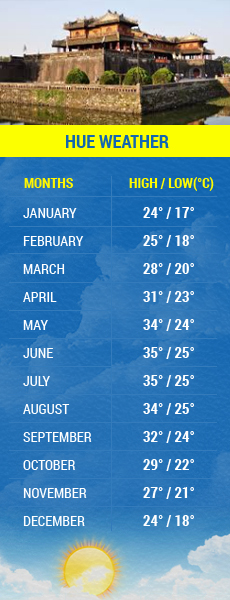As a temple associated with the monuments and attractions of Hue ancient capital, Thien Mu Pagoda is famous and attractive for tourists not only by the legendary mystery, but also an ancient beauty creating the poetic peacefulness in here.

Located on the left bank of the Perfume River, in the romantic Ha Khe hill, covered by lush forests with cool wind of four seasons, about 5km West of the center of Hue city, Thien Mu pagoda is in the middle of a charming space, where has been the inspiration for many works of Hue traditional folk songs.
It was officially founded in the year 1601, in the period of the Nguyen Hoang, Thien Mu Pagoda underwent many restoration, and natural disasters. Nowadays, it is still preserving its magnificent long lasting beauty. With the view of the Perfume river, the Phuoc Duyen tower stands right in the middle of the courtyard, in front of the pagoda. The tower was built by Thieu Tri King in 1844, the octagonal height of 21 meters consists of seven floors, each floor contains the Buddha placed inside.

Away from the Phuoc Duyen Tower is Dai Hung, the main shrine in the temple, an architectural preserved historical value although experiencing many natural events for many years. The beauty of Dai Hung can be described under two main words, ancient and magnificent value. Around the pagoda is the campus with lush green garden, which create the fresh and cool atmosphere that tourists extremely want to experience. From the courtyard looking down is the Perfume River, creating a unique peacefulness in here.

Besides the beauty of architecture and rare history, Thien Mu pagoda is also a place to store many valuable antiques, gravestones, antique sentences, rare ancient statues, bronze bells, and artistic value.
Thien Mu Pagoda’s attractiveness has already created the most beautiful value of Hue. This place has been listed on the list of 20 most wonderful land of Vietnam where tourists must definitely visit, the capital of Hue, one day.
Explore more places: Perfume River; Hue Garden Houses; Ngu Binh mountain; Vong Canh Hill; Hue Citadel; Hue Imperial Museum of Royal Antiquity; Thuy Bieu Eco village; Bach Ma National Park; Dong Ba market; Truong Tien Bridge























































